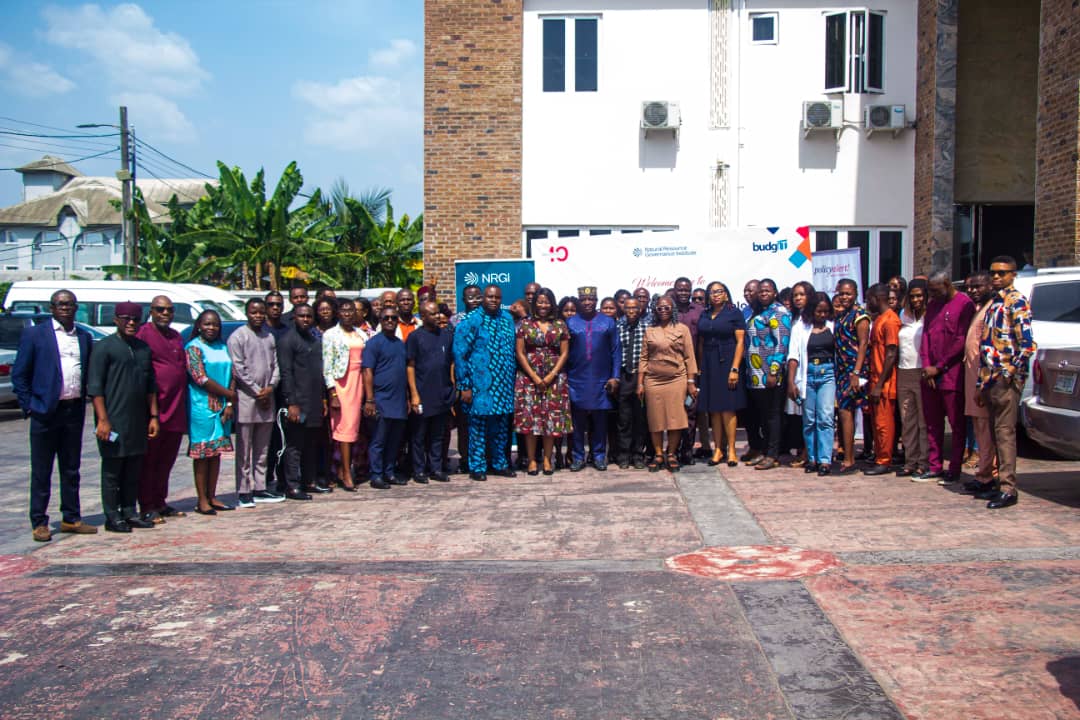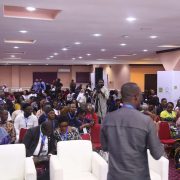Energy Transition: Stakeholders Call for Policy Reforms to Strengthen Niger Delta’s Fiscal Resilience

As the world transitions to cleaner energy sources, Policy Alert, a non-governmental organisation, has called on the Akwa Ibom State and Nigerian government to urgently initiate policy reforms and diversify its economy away from oil revenue.
The call was made at a two-day Regional Stakeholders Dialogue organised in partnership with the Natural Resources Governance Institute (NRGI) and BudgIT on the theme, “Fiscal Resilience on Energy Transition: A Roadmap for Akwa Ibom’s Sustainable Future,” held in Uyo, Akwa Ibom State capital from November 21st to 22nd, 2024.
According to Policy Alert, the move is necessary to strengthen the fiscal resilience of the Niger Delta as global attention begins to shift from fossil fuel to renewable energy and other revenue sources.
Speaking on behalf of the Executive Director of the organisation, Mr Tijah-Bolton Akpan, Mr Koko Udo noted that the looming global energy transition presents a significant challenge for oil-dependent regions including Akwa Ibom to ensure the state’s long-term fiscal health.
He noted that proactive steps must be taken to unlock alternative revenue sources, hence the partnership between Policy Alert, NRGI and BudgIT to drive the conversation and consequently amplify the importance of the issue.
The organisation also, in a communique issued at the end of the dialogue, noted that “Nigeria’s vast oil reserves remain untapped due to a critical shortfall in domestic refining capacity. This forces the nation to import a substantial amount of refined petroleum products at exorbitant costs, thereby stifling economic growth and development.
The consequences of this reliance on imports extend beyond the national level, impacting revenue generation at the subnational level as well. The Niger Delta, heavily reliant on federal allocations from oil revenue, faces significant challenges due to the global shift towards renewable energy.
This transition necessitates a proactive approach to diversify the economy and secure a sustainable future.”
Delivering a presentation on the topic, ‘’Securing an Economic Future for the Niger Delta Amidst the Energy Transition”, Tengi George-Ikoli, the Senior Program Officer at NRGI, noted that the global energy transition presents a significant challenge for oil-dependent regions like the Niger Delta.
George-Ikoli noted that the Nigerian government must, as a matter of urgency, begin to respond to the global shift from fossil fuel, particularly in the Niger Delta, as it cripples the country’s economic growth.
While expressing worry over the devastating effect of fossil fuel on our environment and the need to take action on climate, she stressed that the state government must implement various initiatives targeted at simulating economic growth and social development, as well as explore effective strategies to combat environmental degradation.
Edidiong Dickson, the Programs Manager of Policy Alert, in his presentation on ‘’A Debt Defying Future: Strategies for a Resilient Niger Delta”, revealed that Nigeria’s oil production has dropped drastically due to the shift to renewable energy, adding that Nigeria can no longer produce the volume of oil as it did in the 1970s.
Dickson explained that this decline may impact the Niger Delta region the most, thereby leading to the region struggling to meet its financial obligations and increased debt profile, which ultimately may lead to development deficit.
He noted that the government must discourage the trend of increasing its debt profile but rather explore alternative revenue sources and develop strategies for a resilient economy.
He added that if the government must borrow, then there must be fiscal discipline and responsible borrowing practices in place to avoid the debt trap.
Enebi Opaluwa, Head of Natural Resource and Climate Governance at BudgIT, presented findings from a pilot research conducted on Akwa Ibom as the focal state.
Opaluwa explained that the research findings showed Akwa Ibom State is massively impacted by climate actions, which has led to warmer sea temperatures, reduced catch potential, fish migration, reduced population of fish species (e.g., periwinkle and Ekpai [Ethmalosa fimbreata]), and increased cost of fishing (fuel, maintenance, risk).
He noted that other issues the research discovered are increased cost of fish products, worsened insecurity and sea pirate activities, ocean expansion, flooding in coastal communities and towns, building collapse instigated by gas flaring, exacerbated by oil spills, among others.
He noted that even though the state government has made several efforts, like setting up a multi-state technical committee on climate change (STCC) and partnering with a German-based energy conservation company to establish a fuel-efficient cookstove factory in the state, the state can still harness its blue economy potentials by putting in place modern infrastructure and expanding its investment in aquaculture and tourism.
Sharing findings of his report on “Building a Resilient Niger Delta: Akwa Ibom Case Study,” Iniobong Usen, BudgIT Head, Research and Policy Advisory, noted that despite boasting of dense groves of oil palm, cocoa, and other resources with expected market growth of $66.99 billion in 2024, the state is heavily dependent on federal government allocation.
Usen stressed that to grow the Akwa Ibom economy beyond oil, the government must broaden and diversify its revenue base by improving non-tax revenue and sweating state assets, block revenue leakages by fully operationalizing TSA and digitizing revenue collection, as well as improve the ease of doing business (power, road, transport, digital infrastructure, multiplicity of taxes) and improve budget credibility (improve disbursements to priority sectors). He also emphasized the need to increase investment in education, health, and WASH.
Also contributing to the dialogue, stakeholders, including government officials, civil society organizations, and community leaders, during the panel discussion highlighted the importance of updating policies, diversifying revenue sources, and strengthening the skills of decision-makers.
They noted that raising awareness and integrating energy transition plans into the state’s development strategy are essential steps for moving forward, adding that the plan must address how it will strengthen the region’s long-term fiscal health.
Some of the policy reforms recommended by stakeholders include the rationalisation of state assets to yield returns on investment, the establishment of fiscal laws that align with federal capital budget, and the creation of an enabling environment for private sector investment.
The stakeholders also called for increased investment in research and development, infrastructure development, and human capital development.







